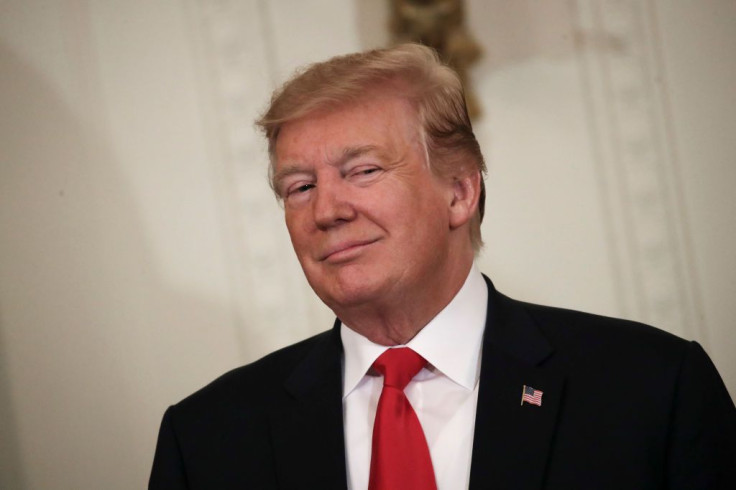US - China Trade War: Trump Expresses Optimism Amid Tariff Battle, Says Mnuchin Had 'Good Talk' With Chinese Officials

Amid growing trade tensions, President Donald Trump said Friday that Treasury Secretary Steve Mnuchin had a "good talk" with his Chinese counterpart.
"We're dealing with China… they're not doing very well. They just had the worst year they've had in 27 years," Trump said. "Let's see what happens."
The U.S. and China have only had recent conversations by phone. Mnuchin told Reuters this week that there was potential for in-person trade talks and told CNBC that "complicated issues" remain in the trade war.
The U.S. and China have been engaged in a trade war, which escalated further this year when the Trump administration raised tariffs 25% on $200 billion of Chinese products. China retaliated with their own tariffs, which have hit hard at American farmers.
At the G20 summit in June, Trump and Chinese leader Xi Jinping agreed to not implement any more tariffs on goods for the time being. The two sides could possibly make a trade deal to end the economic tensions between the two countries.
William Lee, a chief economist for the Milken Institute think tank, said a "high level of uncertainty is causing manufacturing firms to be reticent to make investments. That high degree of uncertainty is causing a drag on U.S. growth."
Lee added that China is seeking respect. "China wants a face-saving way of coming to the table," he said.
Trump has publicly stated that China has been taking advantage of the U.S. by manipulating its currency and flooding international markets with cheap imports. Walmart and other companies claim that tariffs would lead to an increase in the price of goods for Americans.
Peter Navarro, a key Trump adviser, has said that the goal of the tariffs is to disrupt the Chinese economy.
"What happens when we put the tariffs on is China is forced to lower their prices, they have fewer exports, lower profits," Navarro told CNN in June.
"The Chinese government itself experiences lower tax revenues, a slower rate of growth, a higher unemployment rate and foreign direct investment flows out of China," he added.
Trade talks have been hampered since May when the Trump administration's placed telecom giant Huawei on a blacklist for U.S. suppliers.
The U.S. enjoyed mostly warm relations with China during the Obama administration. Obama sought to focus more diplomatic efforts on China as a part of his administration's "Asia Pivot" away from the Middle East.
© Copyright IBTimes 2024. All rights reserved.





















